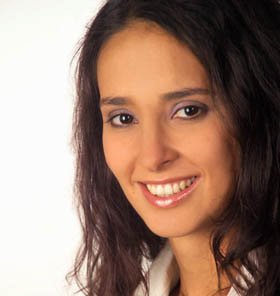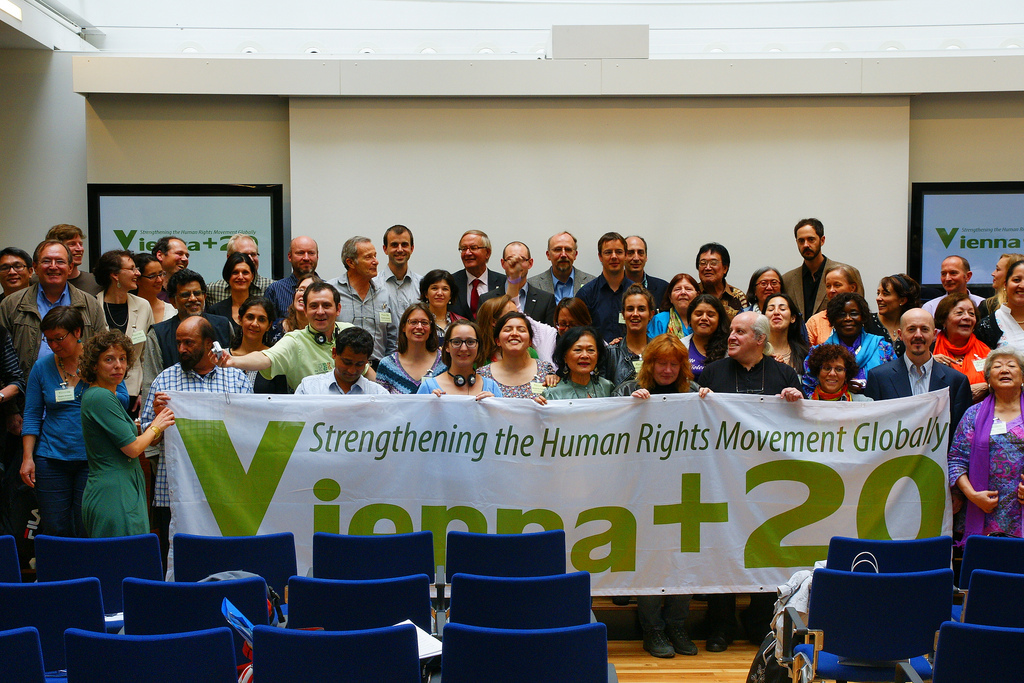
In June 2013, Civil Society Organizations (CSOs) around the world gathered at Vienna for the 20th anniversary of the 1993 World Conference on Human Rights and its Vienna Declaration and Programme of Action. The CSOs held a two-day conference to precede the Vienna+20 Advancing the Protection of Human Rights Conference on June 25th organized by the Austrian government, in cooperation with the Office of the UN High Commissioner for Human Rights (OHCHR) and other human rights institutions. The conferences brought together UN Special Rapporteurs and Independent Experts, high-level officials of human rights institutions, academics, and CSO representatives to discuss the human rights challenges facing the world today. As part of CIEL’s ongoing engagement in this initiative, I, as CIEL’s Louis B. Sohn Fellow, participated as an expert on human rights and the environment.
The CSO Declaration, adopted by the Conference, stresses the primacy of human rights and reiterates that the first responsibility of States is ensuring human rights. Ultimately, the recommendations coming out of the Vienna+20 Conferences will be presented to the UN General Assembly and Human Rights Council meetings this fall to inform the ongoing negotiations on a development agenda.
The Declaration specifically recognizes the importance of the environmental and ecological dimensions of human rights, and the notion that a safe, clean, healthy and sustainable environment is integral for the full enjoyment of human rights. The Declaration makes reference to Principle 10 of the Rio Access Rights, indigenous peoples, the need to ensure transparency in global trade and investment regimes, free, prior and informed consent, and also emphasizes the rights of future generations. With a view to addressing the increasing challenges of accountability posed by globalization, the Declaration emphasizes the importance of strengthening extraterritorial obligations.
The Declaration calls upon states to ensure that any sustainable development framework, goals, targets, or indicators are aligned with human rights and are disaggregated, time-bound, equity-sensitive and consistent. The Vienna +20 Conference stressed how human rights and environmental protection must not be subordinated to corporate interests. Wellbeing must be understood as more than mere economic growth. However, as the Declaration elaborates, human rights in development are about progressive realization, rather than a punctual expression of acceptance of human rights obligations on an abstract level. Human rights are lived and not mere words in a document. States should progressively move to improve equality and efforts to reduce poverty must be scaled up and take development targets seriously.
In particular, the Declaration highlights the importance for States to consider the rights of local fishermen, local peasants, and indigenous peoples when dealing with sustainable development in the broader fishing, agriculture, logging, and mining contexts. Many of these populations are overlooked and especially vulnerable.
The Declaration contains recommendations integrating Human Rights and Sustainable Development. This includes human rights and environmental impact assessments for all development activities, a full realization of Principle 10 Rio Access Rights by giving people information and a voice concerning development projects that affect them, accountability through effective monitoring, review and redress mechanisms, and an incorporation of sustainability in Human Rights principles to be monitored in the Universal Periodic Review of the Human Rights Council.
The CSO Declaration also states the need for structural transformation in our societies and economies. This includes the reduction of exploitation of natural resources, over-consumption and pollution, repairing the financial, trade, and investment system, and the sustainable generation and fair distribution of resources, among many others.
In her concluding statement to the plenary, Her Excellency Ms. Pillar, UN High Commissioner for Human Rights, highlighted the threat to future generations posed by climate change and stressed the crucial role of a human rights-based approach for any post-2015 development agenda.
Links:
- CSO Conference including the CSO Declaration
- Vienna+20“: High Level Conference on Human Rights on 27/28 June 2013
Originally posted on July 24, 2013.

